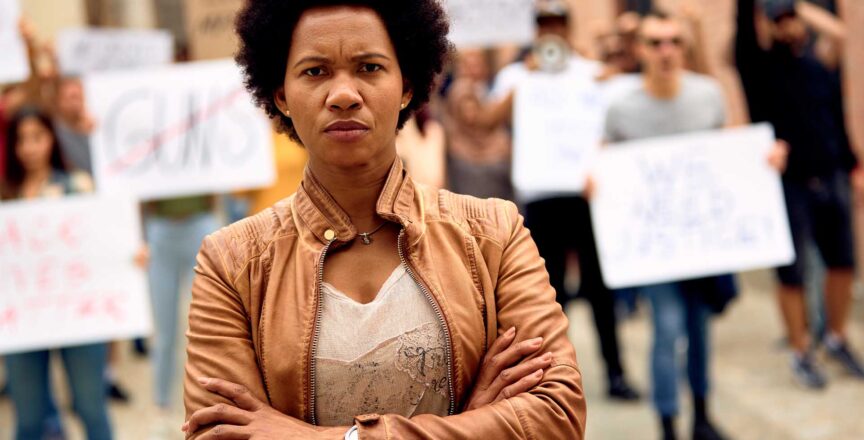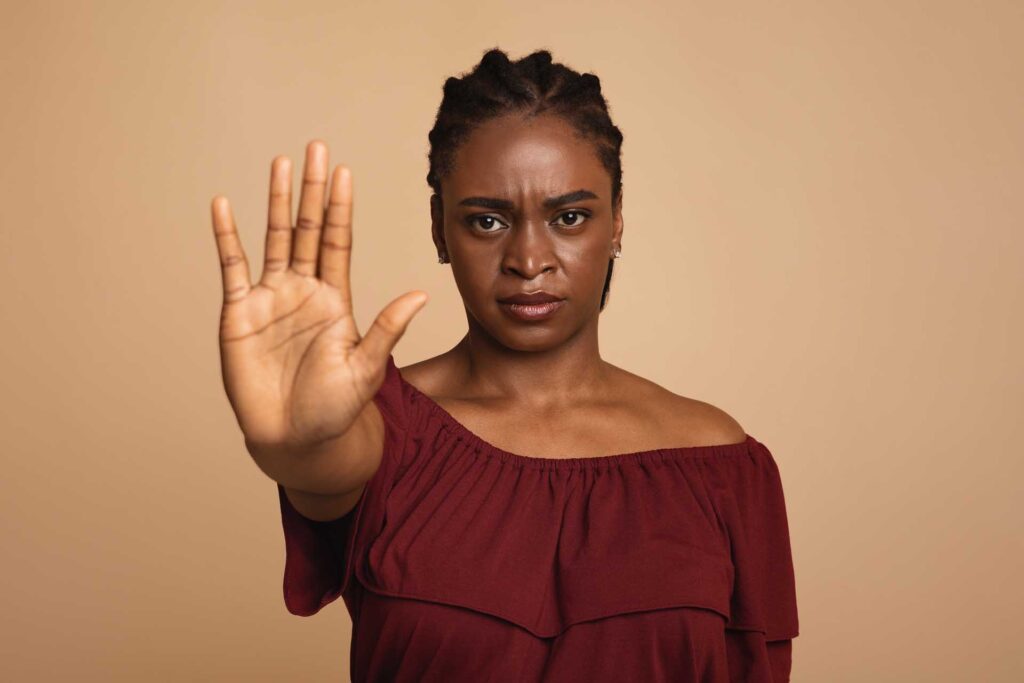

If you’re a black woman in the workplace, you’ve probably faced the angry black woman stereotype. This stereotype paints you as hostile, aggressive, or overbearing, and it can hurt your career and well-being.
In this article, you’ll learn where this stereotype comes from, how it affects you at work, and how to overcome it. You’ll also discover how to foster diversity and inclusion in your workplace.
Understanding the “Angry Black Woman” Stereotype
What is the “Angry Black Woman” Stereotype?
The “Angry Black Woman” stereotype is a pervasive and harmful trope that portrays black women as hostile, aggressive, overbearing, ill-tempered, belligerent, or contentious.
This stereotype is often used to dismiss, silence, or undermine black women’s voices, opinions, and achievements. It can also lead to discrimination, bias, and harassment in the workplace.
Where Does This Stereotype Come From?
The “Angry Black Woman” stereotype has deep roots in history and culture. This stereotype has been perpetuated over time through media portrayals and societal attitudes.
It originated during the era of slavery in the United States, when black women were often portrayed as aggressive and domineering to justify their mistreatment.
How is This Stereotype Perpetuated?
This stereotype is perpetuated in various ways. For example, when a black woman expresses her opinion or stands up for herself, she may be labeled as an “angry black woman”.
This can discourage black women from speaking out or asserting themselves for fear of being stereotyped.
In the media, black women are often portrayed as angry or aggressive characters. These portrayals reinforce the stereotype and make it seem normal or acceptable.
The Impact of Media Portrayals
Media portrayals play a significant role in perpetuating the “Angry Black Woman” stereotype. For example, in movies and TV shows, black women are often cast in roles that depict them as angry, aggressive, or overbearing. These portrayals can reinforce the stereotype and contribute to its persistence in society.
The Impact of the Stereotype on Black Women in the Workplace
Many black women have personal experiences with this stereotype at work.
For example, they may feel that they have to suppress their emotions or opinions to avoid being labeled as an “angry black woman”. This can lead to stress, frustration, and a sense of isolation.
Workplace Discrimination
The “Angry Black Woman” stereotype can contribute to workplace discrimination.
For example, a black woman who asserts herself may be seen as aggressive or difficult, which can affect her career advancement opportunities.
In contrast, a white male colleague who behaves similarly might be seen as assertive or ambitious.
The Effect on Diversity and Inclusion Efforts
This stereotype can also hinder diversity and inclusion efforts. It can create a hostile work environment for black women and discourage them from participating fully in their workplaces.
This can lead to lower job satisfaction and higher turnover rates among black women.
Strategies for Addressing and Dismantling this Stereotype
Role of Individuals, Teams, and Leadership
Everyone has a role to play in addressing stereotypes. Individuals can educate themselves about the “Angry Black Woman” stereotype and its impacts.
They can also challenge their own biases and speak out against stereotyping when they see it.
Teams can foster an inclusive culture where everyone’s voices are valued and respected. They can also provide training on unconscious bias and stereotyping.
Leadership plays a crucial role in setting the tone for the organization. Leaders can model inclusive behavior, hold people accountable for discriminatory behavior, and implement policies that promote diversity and inclusion.
Importance of Open Dialogue and Education
Open dialogue and education are key to addressing stereotypes. By talking openly about the “Angry Black Woman” stereotype, we can raise awareness about its harms and work together to dismantle it. Education can also help people understand the historical context of this stereotype and its impacts on black women today.
Strategies for HR Professionals
HR professionals have a crucial role to play in addressing stereotypes. They can provide training on unconscious bias and stereotyping.
They can also implement policies that promote diversity and inclusion, such as diverse hiring practices and inclusive performance evaluation criteria.
HR professionals can also provide support for employees who experience discrimination or harassment due to stereotypes.
Part 4: Promoting Diversity and Inclusion in the Face of Stereotypes
The Role of Diversity and Inclusion Initiatives
Diversity and inclusion initiatives play a crucial role in combating stereotypes. By promoting a diverse and inclusive workplace, we can challenge stereotypes and create an environment where everyone feels valued and respected. For example, a company that values diversity might have a more diverse leadership team, which can help to challenge stereotypes about who can be a leader.
Case Studies of Successful Diversity and Inclusion Efforts
There are many examples of companies that have successfully promoted diversity and inclusion. For example, some companies have implemented unconscious bias training, diverse hiring practices, and inclusive performance evaluation criteria. These efforts have helped to create a more inclusive workplace culture and challenge stereotypes.
Conclusion on The Angry Black Woman Stereotype
The “Angry Black Woman” stereotype is a harmful trope that affects many black women in the workplace. However, by understanding this stereotype and its impacts, we can take steps to address it.
Through education, open dialogue, and diversity and inclusion initiatives, we can create a workplace where everyone feels valued and respected.
Remember, change starts with us. So let’s roll up our sleeves, put on our thinking caps (or whatever headgear you prefer), and get to work on creating a more inclusive workplace.
Because at the end of the day, isn’t that what we all want? A workplace where everyone is treated with respect and dignity. Now that’s something worth striving for!
FAQ
Q: What is the origin of the “Angry Black Woman” stereotype? A: The stereotype originated during the era of slavery in the United States, when black women were often portrayed as aggressive and domineering to justify their mistreatment.
Q: How does the “Angry Black Woman” stereotype affect black women in the workplace? A: The stereotype can lead to discrimination, bias, and harassment. It can also discourage black women from speaking out or asserting themselves for fear of being stereotyped.
Q: How can we address the “Angry Black Woman” stereotype? A: We can address the stereotype through education, open dialogue, and diversity and inclusion initiatives. Everyone has a role to play in challenging stereotypes and promoting an inclusive workplace culture.
Q: What is the role of diversity and inclusion initiatives in combating stereotypes? A: Diversity and inclusion initiatives can challenge stereotypes and create an environment where everyone feels valued and respected. They can also help to promote a diverse leadership team, which can challenge stereotypes about who can be a leader.
Q: Can you give examples of successful diversity and inclusion efforts? A: Yes, many companies have successfully promoted diversity and inclusion through unconscious bias training, diverse hiring practices, and inclusive performance evaluation criteria. These efforts have helped to create a more inclusive workplace culture and challenge stereotypes.
Last modified: October 16, 2023



